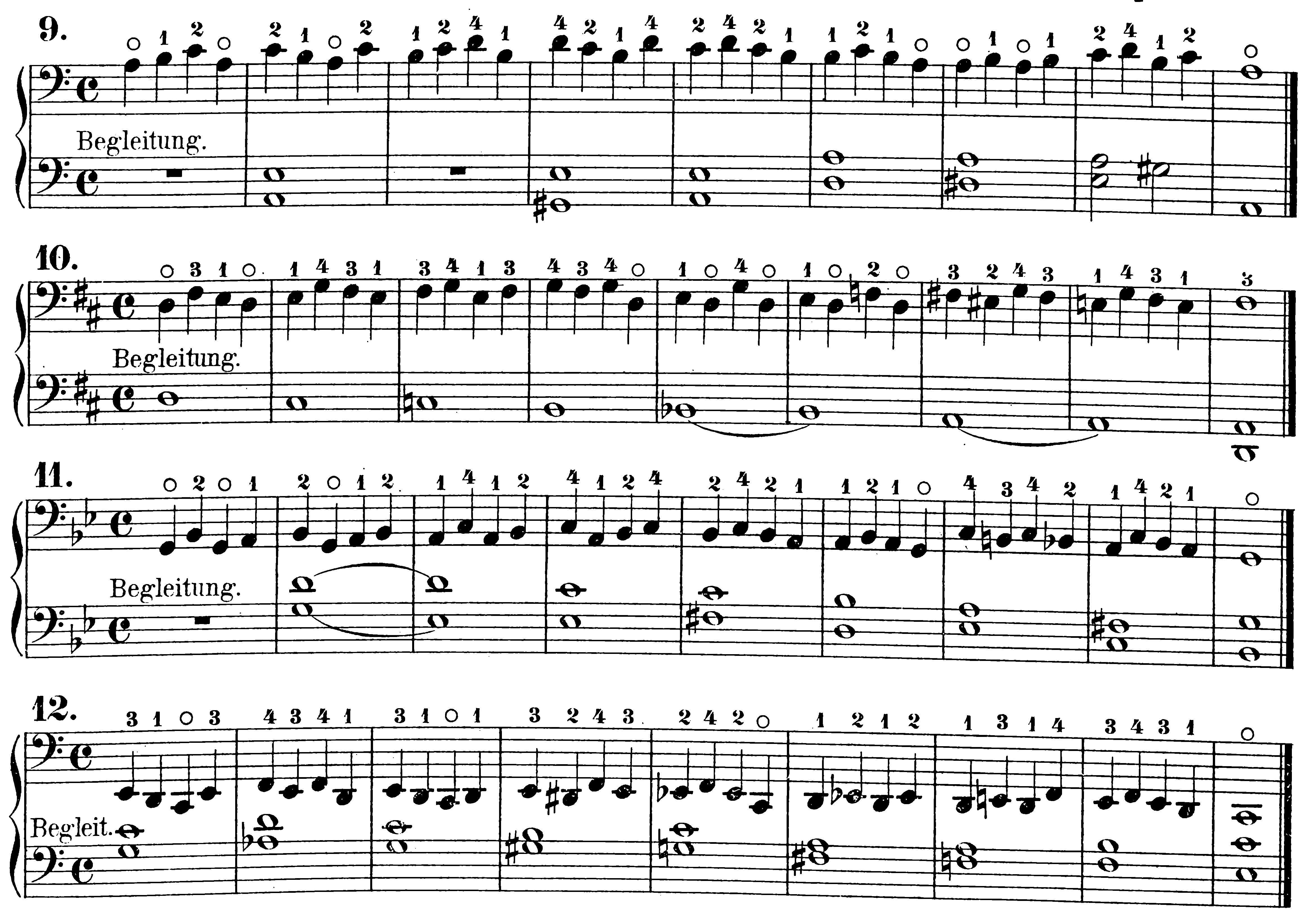Different Strokes
The examples given above should be played using the whole bow. However, the entire length of the bow is not always used. It can also be used partially, and one can generally assume that the length of the stroke is in proportion to the duration of the note value. Whole notes require more bow length than half notes and quarter notes, etc. We therefore differentiate between whole bows, half bows, and short bowstrokes. If only part of the bow is used, as in the case of short bowstrokes, this part can either be near the frog, near the tip, or in the middle of the bow. For half bows, you can either use the half of the bow from frog to middle, or the half from the middle to the tip. In this way, we get six different types of strokes.
D-string
G-string
C-string
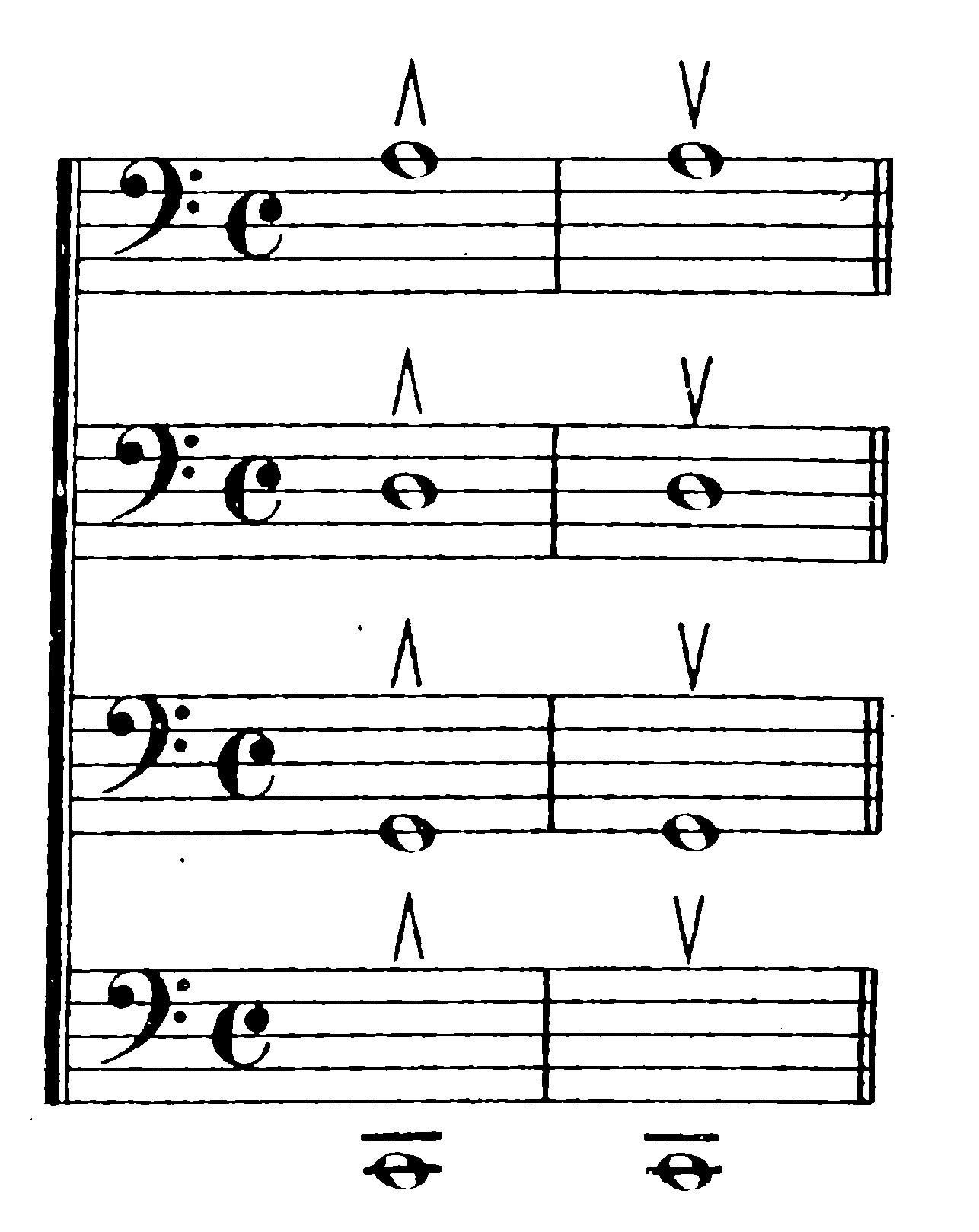
a) from the frog to the middle.
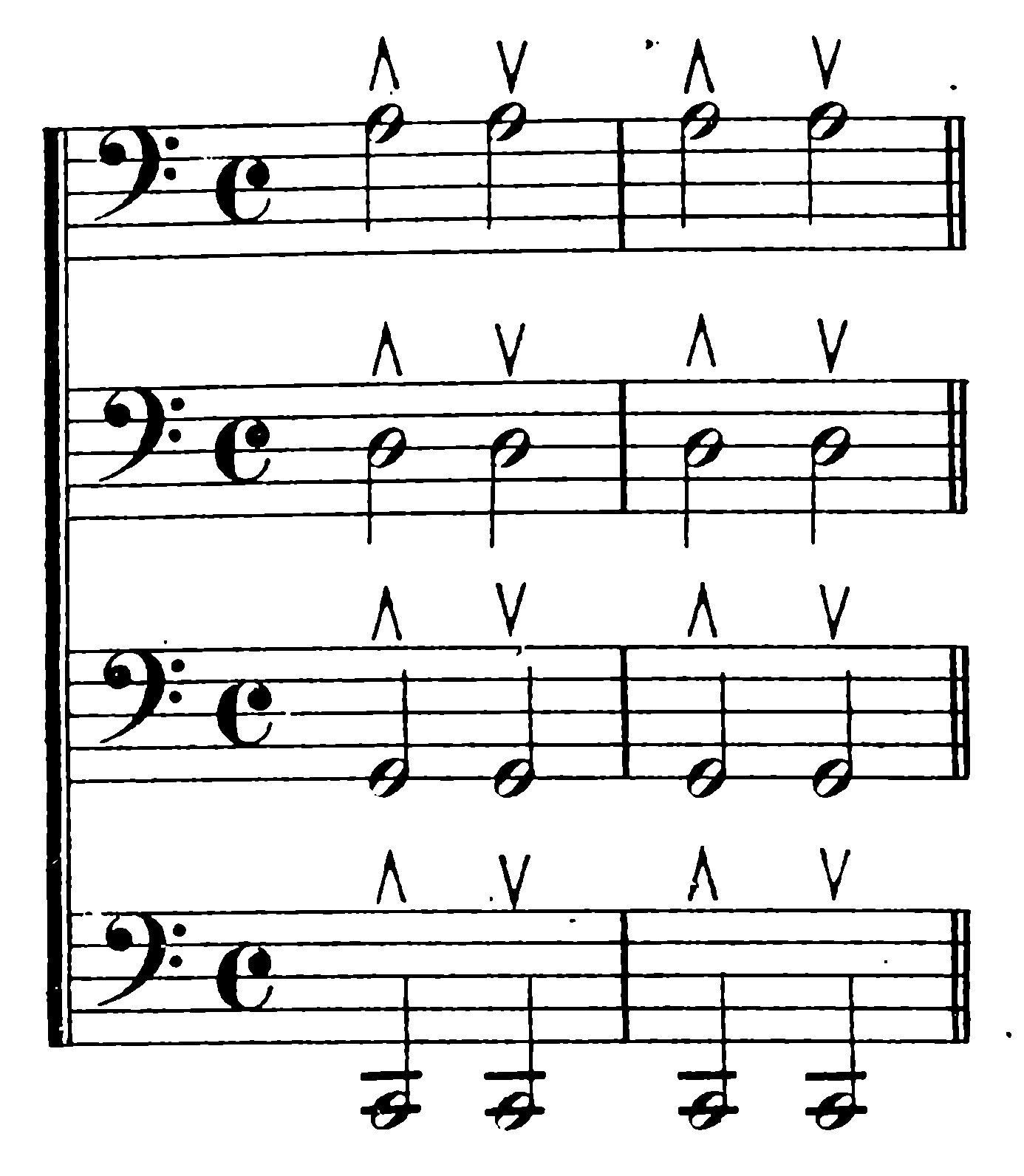
b) from the middle to the tip.
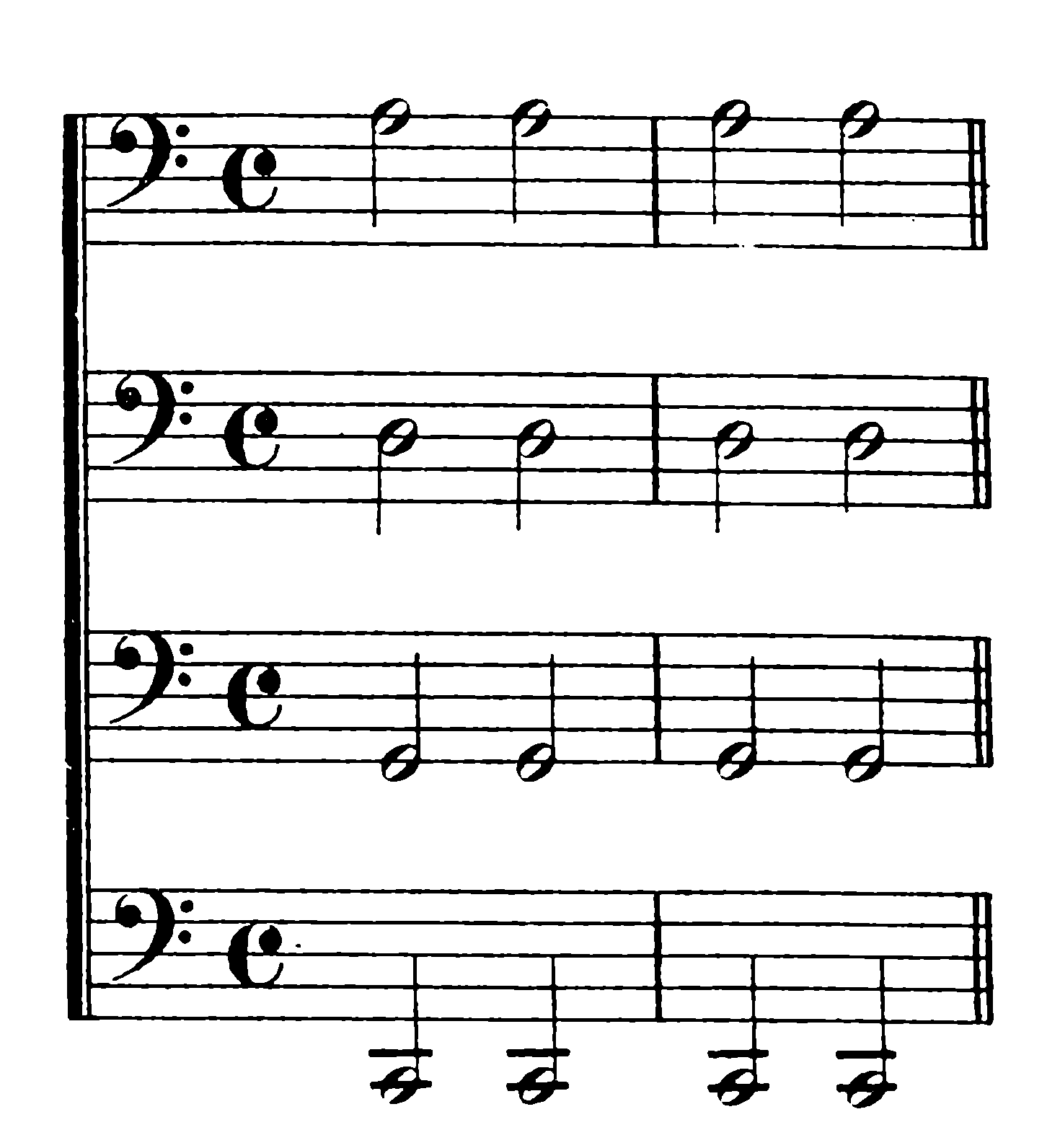
a) near the frog.
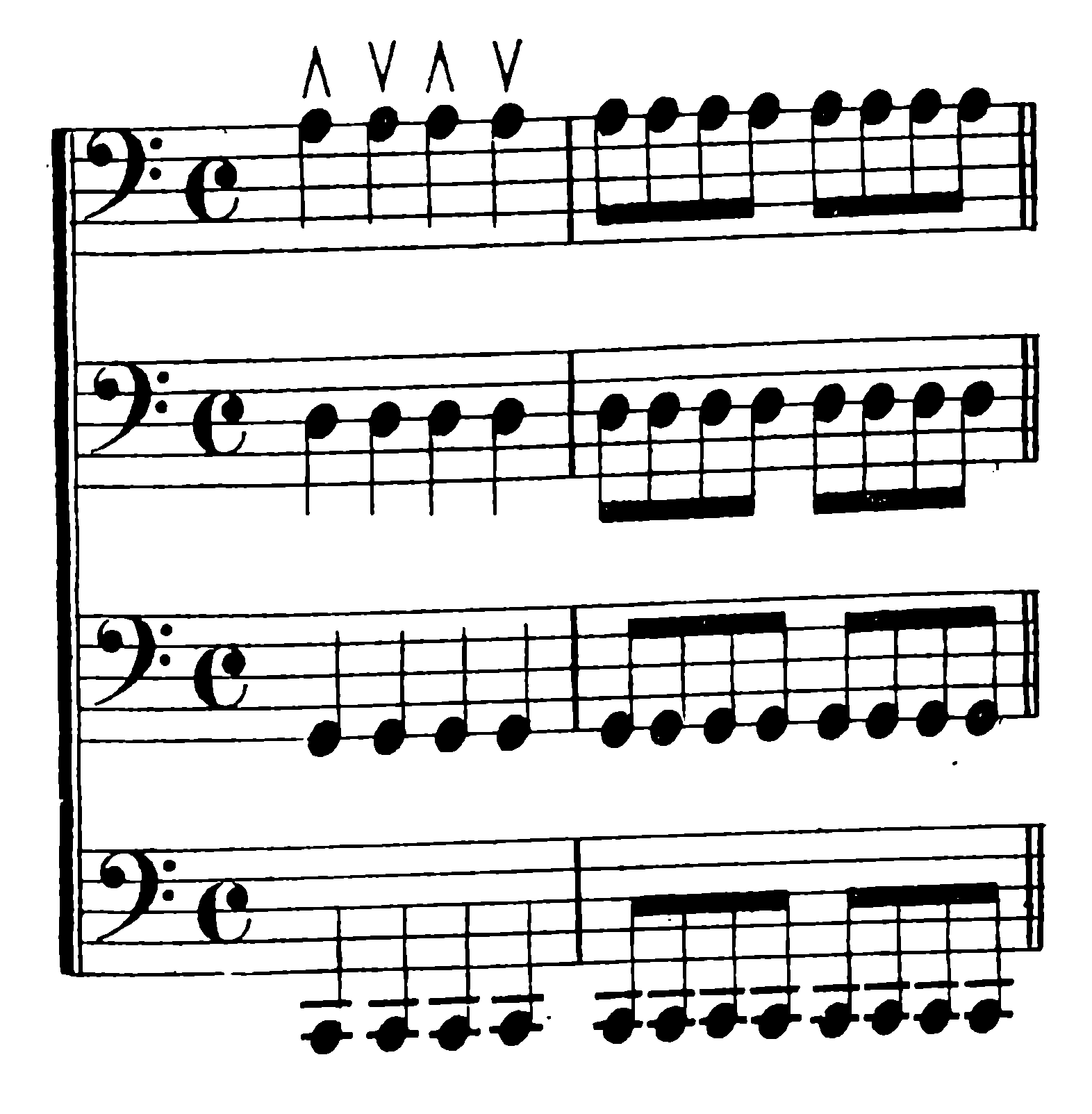
b) near the tip.
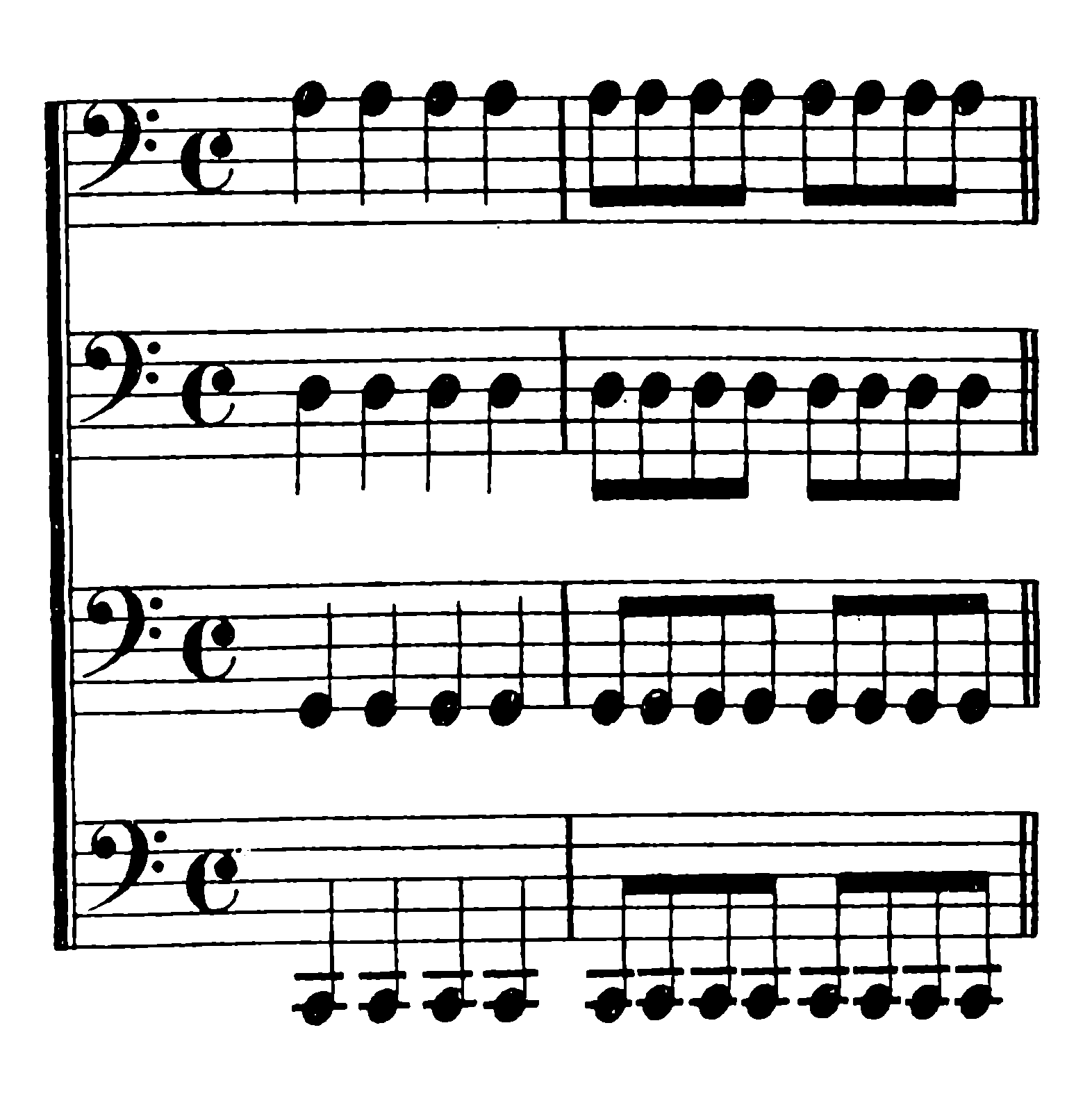
c) in the middle of the bow.
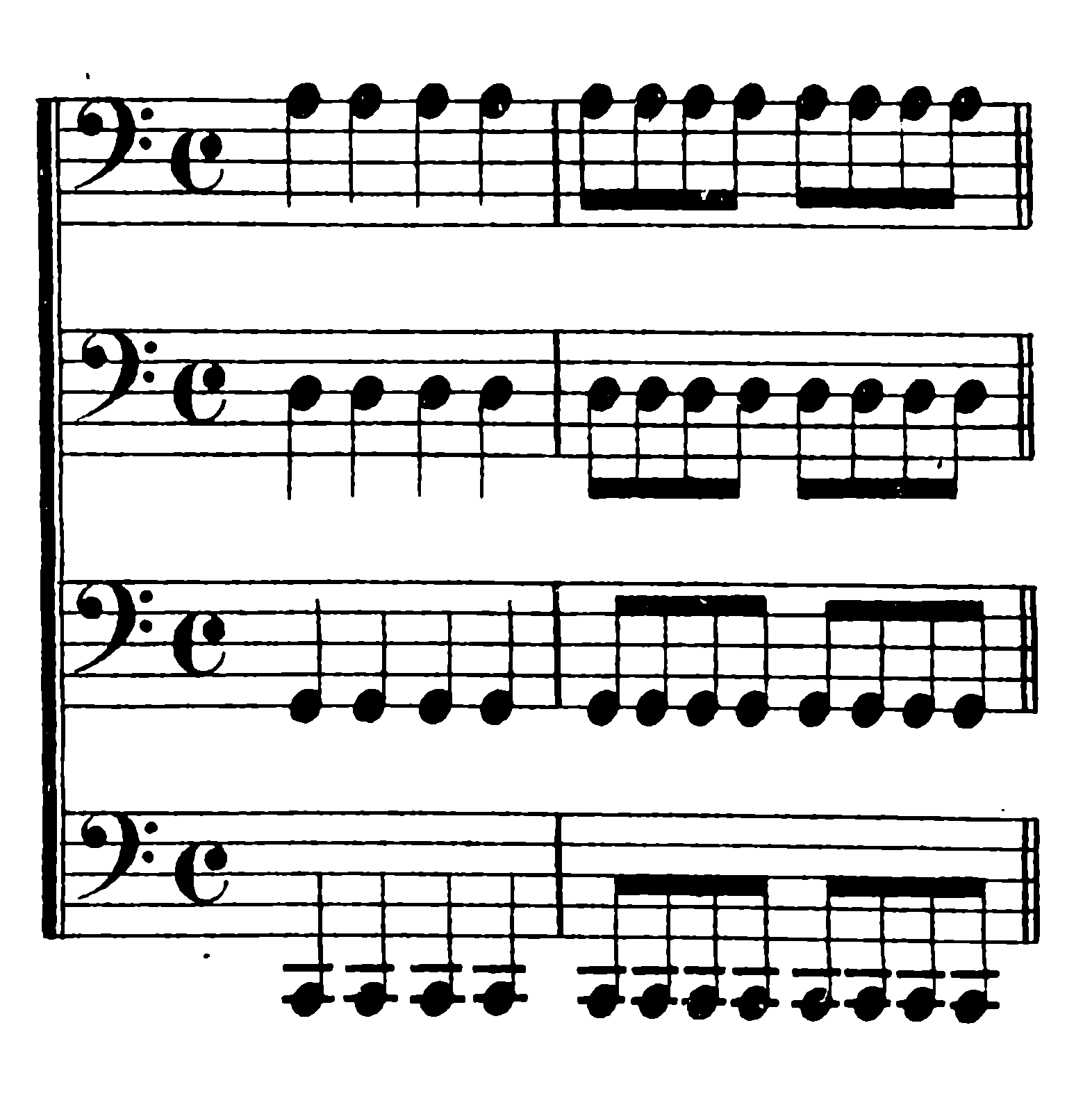
If the stroke is very short, such as in the case of eighth notes at a fast tempo, it is performed exclusively with hand movement, with the upper arm and forearm immobile.
The following exercises and examples are designed to familiarize the player with all possible combinations of fingers in the first position on the four strings. The half notes should be executed in a slow tempo with the whole bow, and at a faster tempo with half bows. In the latter case, they should be practiced alternatively from the frog to the middle of the bow, and from the middle to the tip of the bow. The quarter notes should be executed at a slow tempo with half-bow strokes and in a faster tempo with short strokes; in the latter case, the three parts of the bow mentioned above should be used.
Exercises with Whole or Half Bows
In the second case, alternatively from the frog to the middle of the bow, and from the middle to the tip of the bow.
D-string
G-string
C-string
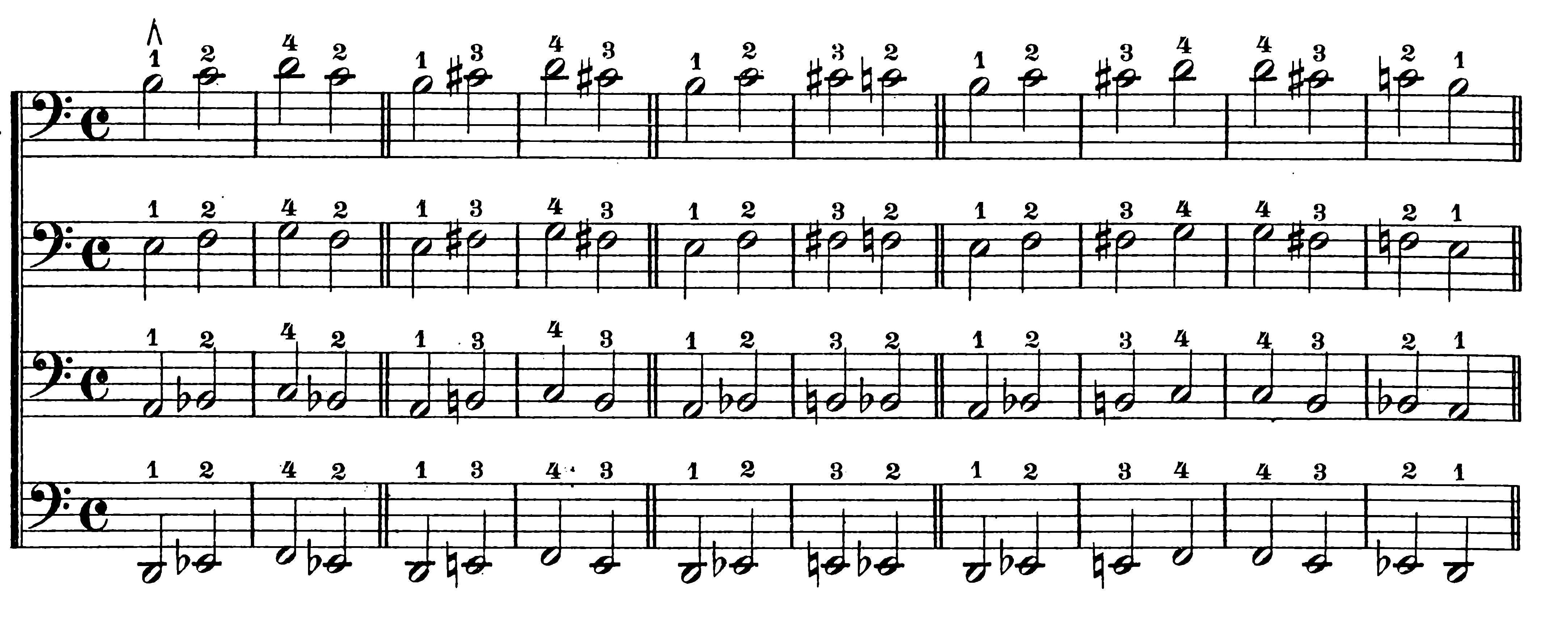
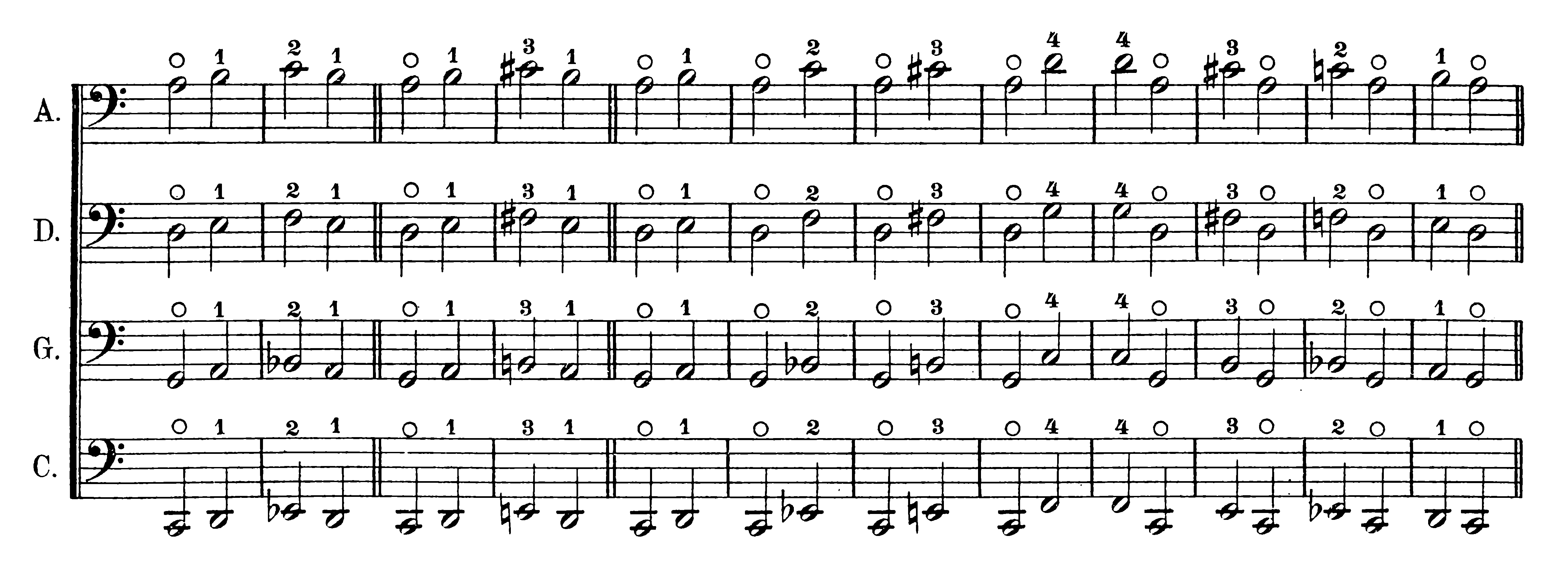
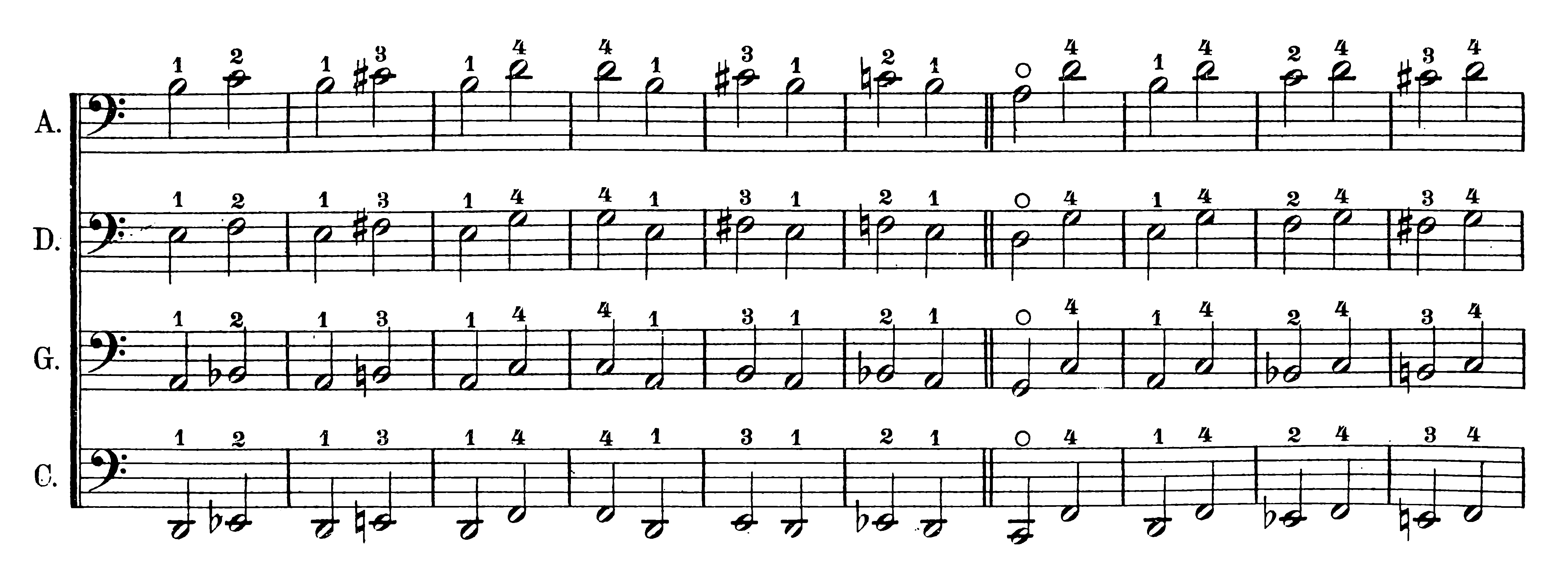
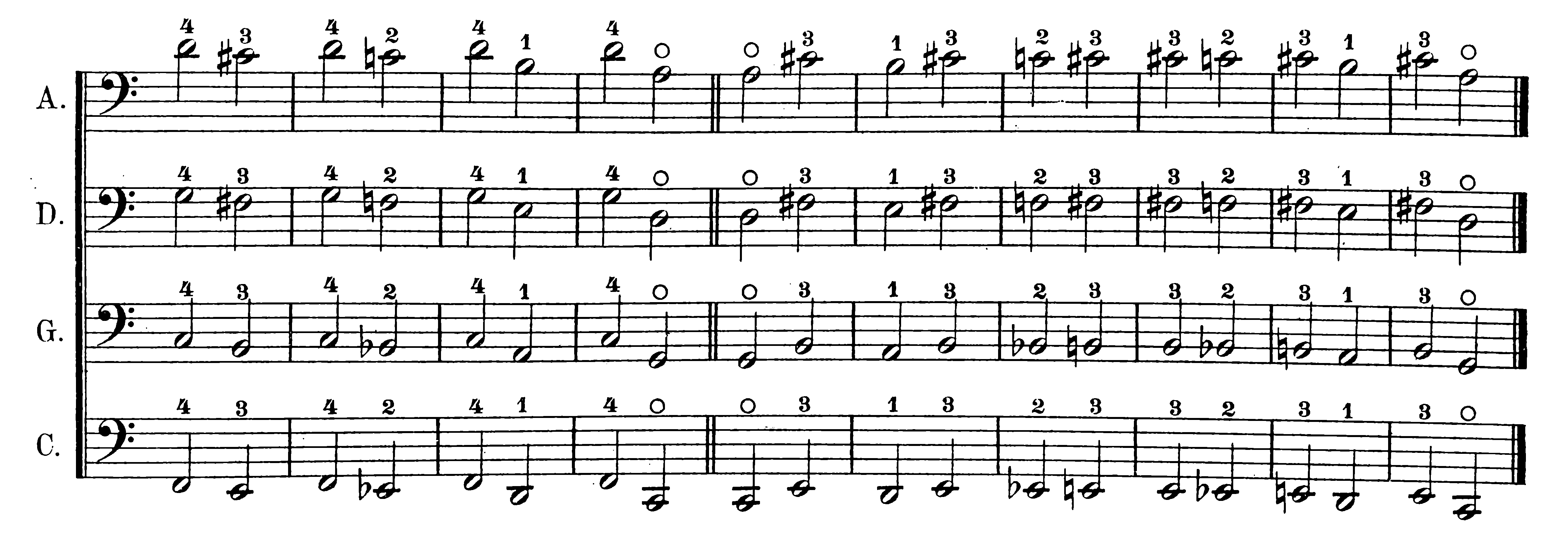
Examples of Short Bowstrokes
Play alternately at the frog, the tip, and the middle.
